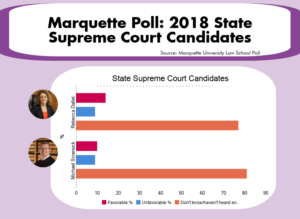In their March 22 extraordinary session, the Wisconsin Assembly concurred in AB 773, which contains a number of important civil litigation reforms, including discovery and class action rules. The bill now heads to Gov. Scott Walker for his signature.
AB 773 is a major victory for Wisconsin businesses and will significantly reduce the cost of litigation. Common-sense reforms under the bill will:
- Prevent litigants from abusing the discovery process to leverage a higher potential settlement or engage in a “fishing expedition.”
- Allow parties to appeal a trial court’s decision to certify a class in a class action lawsuit.
- Lower the statute of limitations for a number of claims.
- Prohibit the Department of Revenue from entering into a contract that includes contingency fee audits for any company domiciled in the state or that maintains its principal place of business in the state. Working under contingency fee arrangements incentivizes aggressive approaches to audits that unfairly increase costs for businesses in Wisconsin.
- Require notice of third-party litigation financing. Such third-party finance can increase the cost of litigation and cause suits to be brought that would not otherwise have been financially justified. Wisconsin will become one of the first states in the nation to require mandatory disclosure of third party litigation financing.
“AB 773 is a major victory for small to large Wisconsin businesses and will greatly reduce the cost of litigation. The legislation brings Wisconsin in line with the vast majority of other states when it comes to its discovery procedures and class action rules. WCJC thanks the bill authors, Sens. Tom Tiffany and Dave Craig, along with Reps. Mark Born and John Nygren,” said Bill G. Smith, president of the Wisconsin Civil Justice Council and state director for National Federation of Independent Business-Wisconsin.

